“I’m Not a Theorist. My Vocation Is Biography”—Checking in with Sir Paul Preston
The British historian Paul Preston, who just turned 72, has been knighted—a good moment to look back on his career and assess the latest developments in Spain, where one of his major research subjects, Franco, continues to stir up controversy. “In Spain, there’s a kind of historic notion that the British are polite, gentlemanly, and so forth. Bizarrely, I seem to plug into that image.”
When I last spoke with Paul Preston, five years ago, he was correcting proofs of The Last Stalinist, his critical biography of Santiago Carrillo, long-time leader of Spain’s Communist Party. Three years later he published The Last Days of the Spanish Republic, a detailed account of the bloody infighting that marked the final month of the war. Preston’s work also formed the basis for two new graphic novels, on the history of the Spanish Civil War and the bombing of Guernica, drawn by José Pablo García. Next year will see the publication of his long-awaited book on the role of corruption in Spanish politics from 1874 to the present, A People Betrayed: A History of 20th Century Spain. Although he’s officially retired, Preston continues to head the Cañada Blanch Centre for Contemporary Spanish Studies at the London School of Economics, which hosts frequent events and sponsors a long-running book series published through Routledge and Sussex. Earlier this summer, on the occasion of Queen Elizabeth’s 92nd birthday, and about a month before he celebrated his own 72nd, Preston was honored with a knighthood—as good an excuse as any for an interview.
I catch Preston on an August afternoon in the booklined study where he spends almost every waking moment of his life. “The last time we did this, you said I was ambitious because I never stop working. But I simply wouldn’t know what else to do!”
I guess congratulations are in order.
Of course, I’m very pleased. But to be honest, I’m also vaguely embarrassed. People tell me I should change my passport and credit cards to get upgrades on airplanes and discounts in restaurants. I’d be so hideously embarrassed. But there are some advantages. If I sign my correspondence with my full title, university bureaucrats become crawlingly sycophantic. (Laughs.)
You’re the second working-class kid from Liverpool I know to become “Sir Paul.” McCartney is only four years older than you. His journey to the knighthood was obviously different from yours. But do you think your ascendency through the rigid British class system says something about your generation?
A lot of people get knighted in the U.K. for all kinds of reasons. Some have given money to a political party. In some cases, it’s automatic, for example if you’re president of a university or the Regius Professor of History at Oxford or Cambridge. Sometimes they make a mistake and knight someone who turns out to be a total scoundrel. Still, I can’t think of many historians with a working-class background who have been knighted. The only one that occurs to me is Ian Kershaw, the great historian of twentieth-century Germany.
You got knighted for your service to Anglo-Spanish relations. Do you feel you have actually served those relations?
(Laughs.) Well, I wouldn’t have thought so. But it’s an interesting question. On the one hand, 13 million British people visit Spain every year, and 1.3 million of them live in Spain. Within those two groups, a very large proportion have never bothered to learn a word of Spanish. Among the holiday makers there are absolute hooligans who go to Spain to have sex and to drink, and to engage in mind-bogglingly disgusting stuff. You’d think that, among the Spaniards, all this would add up to disgust with the British. Yet at the same time, there’s a kind of historic notion that the British are polite, gentlemanly, and so forth. Bizarrely, I seem to plug into that second image. Although, come to think of it, I am actually very polite. With all the debates going on at the moment about Spanish history, for example, I refuse to get involved in polemics.
Speaking of current polemics, the plan to exhume Franco from his tomb in the Valley of the Fallen has stirred up the Spanish right. What do you make of the manifesto in defense of Franco’s reputation, published last week by 181 retired military officers? Or of the conservative historians who claim that Spaniards still suffer from the Black Legend and have much too negative an image of their own national history?
Well, as it turns out, they have a powerful champion in Stanley Payne, the U.S. historian who recently co-authored a biography of Franco that extols the dictator’s virtues and downplays the extent of his repression in a way that I found quite shocking. I think Payne’s most recent book is actually titled In Defense of Spain: Deconstructing Myths and Black Legends.
It’s a curious phenomenon: in the post-Franco period something has happened that would have never occurred in, say, France. In Spain, both the left and the right seem to have felt they needed some kind of legitimation from abroad. In that context, I have become something like the legitimator-in-chief of the democratic left, of the historiography that is sympathetic to the Second Republic. Payne is fulfilling that role on the pro-Franco right.
In Spain, both the left and the right seem to have felt they needed some kind of legitimation from abroad.
In her introduction to Interrogating Francoism, the book of essays that Helen Graham edited in your honor two years ago, she makes an interesting point. She says that Spain’s “memory wars,” which for a while pitted non-historians against historians, have now “turned into full-scale ‘history wars.’” The battle, she writes, “now entered the Academy to involve—and divide—professional historians.”
She’s right. For the book I’m writing now, in fact, I’m catching up on some of the recent research. It’s been a while since I wrote about the Second Republic, and a lot of stuff has come out since then—including from historians close to Stanley Payne who basically seek to blame the Republic for the outbreak of the war. One recent study in this vein claims that the February 1936 elections, in which the Popular Front won by a narrow margin, were fraudulent. Now, some of the research in these books is actually quite interesting. The arguments are deeply flawed, though. When these authors quote extremist statements that were made in the years of the Second Republic by leaders on the left, for instance, we can’t deny that those statements were made. What these authors ignore, though, is the basic social context which shows that there is a fundamental difference between a speech by a well-heeled lawyer on the right like Gil Robles, who heads up the CEDA, and statements made by someone like Margarita Nelken, a deputy for the Socialist Party who spends her time with peasants in Extremadura who are in total desperation from having to watch helplessly as their children die of hunger. They are simply not the same.
Although you try to avoid sterile polemic, you’ve been regularly quoted in recent debates around the Valley of the Fallen. The right wants it to stay as is. Among the left, some have called for its destruction.
There is so much unfinished business in Spain still. When it comes to the Valle de los Caídos, I think it makes no sense to demolish it. At some strange level, it’s one of the wonders of the world—thanks, mind you, to the Republican slave labor that built it. But the Valley can be turned into an educational site. The same is true, for that matter, for streets named after Franco’s generals. Below the sign that says “Calle del General Yagüe,” for example, you could add a simple note: “Responsible for the massacre of Badajoz.”
To demolish the Valley of the Fallen makes no sense.
Looking back on your career from your newly-gained knighthood, would you say that, as an historian, you are a product of your time? Over the past thirty years, you’ve overseen about that same number of dissertations on Spanish history. Many of your pupils have become distinguished historians in their own right. But their work is often quite different from yours in focus and methodology. Is there a something like a “Preston school”?
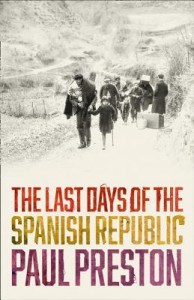 First off, I am not a theorist. I would never write a book about historiography. But it’s true that, between the dissertations and what I do with the Cañada Blanch Centre, I have worked with a lot of people. A lot of Spaniards have come and spent time with me in an early stage of their careers, including Julián Casanova, Enrique Moradiellos, and Ismael Saz.
First off, I am not a theorist. I would never write a book about historiography. But it’s true that, between the dissertations and what I do with the Cañada Blanch Centre, I have worked with a lot of people. A lot of Spaniards have come and spent time with me in an early stage of their careers, including Julián Casanova, Enrique Moradiellos, and Ismael Saz.
What would you think your impact has been on the Spanish historians you helped train?
Teaching them about readability and simplicity—that there is nothing that can be said that can’t be said better, more simply and elegantly. When I started out, Spanish history was written in the most obscure manner. It almost seemed passive aggressive, intended to keep ordinary people from reading it. By now, much history has become much more approachable—and I would like to think I have contributed to that in some measure.
Now, if you laid end-to-end the theses I have supervised and the many books I’ve edited, is there something that ties it all together? For one, obviously there are no pro-Franco items among them but there are several from a pretty conservative point of view. In that sense, you are right that there are a lot of different approaches. Maybe the only thing that links these people is their personal connection with me. There are certain things that I absolutely try to instill. I try to teach people to build a narrative in a way that doesn’t depart from the sources but remains readable and accessible. But clearly there’s no “Preston School” in terms of theory.
When I started out, the nearest to theory that hooked me was Barrington Moore’s The Social Origins of Dictatorships and Democracy, which I found absolutely mind-boggling. I also read a certain amount of Marxist stuff. But my work is not Marxist. First, because I’m not clever enough. And second, rigidity is not my scene: I didn’t give up being a Catholic in order to become a Marxist.
When I wrote The Coming of the Spanish Civil War, if anyone had asked me what kind of historian I was, I’d have answered I was a social historian. But actually over time I have become more and more aware of the role of the individual—an idea, of course, that no Marxist would accept. And I have to say I’m happiest when I’m actually writing about individuals. By the time I wrote my book about Franco I came to accept that my vocation is biography. But has that had an impact on my students? I’m not sure. Again, I’m not a theorist. Indeed, any time I have to delve into some of what is farcically called “cultural studies,” steam comes out of my ears.
In the same way that, as you say, Spanish historians used to pay little attention to readability, the next challenge may be education. In that same book Interrogating Francoism, your Spanish colleague Julián Casanova makes a plea to improve radically secondary-school treatment of twentieth-century Spanish history. Do you know if your own work has been used in that context in Spain? I’m thinking, for instance, of your recent graphic-novel histories.
The artist I work with, José Pablo García, is fabulous. And the graphic novel project isn’t over. Next, the publisher wants us to do my biography of Franco—which is a thousand-page book: condensing that will be a challenge. As far as I can tell, though, the project is a success. The Civil War comic is on its tenth edition. Parents and school teachers have told me it’s been very useful. Actually, in Spain a lot of top-notch historians work as secondary-school teachers because there is not enough work at the universities. The historian Fernando Hernández Sánchez, who trains school teachers in Madrid, has done some excellent work in this area.
Can you say a bit more about the book you’re writing now, A People Betrayed, in which you cover Spanish history from 1874 through the lens of political corruption? The notion of the Spaniards as a noble people cursed with a woefully inept and perpetually corrupt political class has been around at least since Gerald Brenan, if not before. Hasn’t it become a cliché?
I’m a big admirer of Brenan. His Spanish Labyrinth from 1943 was a big inspiration when I set out. I still go back to it from time to time. I’m surrounded by books this high (points to the shelves behind him) but Brenan’s among the ones that’s off the shelf most. Much of it, of course, has been modified if not disproven by later research. But the essential story is there.
I’m a big admirer of Gerald Brenan’s The Spanish Labyrinth. The essential story is there.
My present book is a narrative history but it has a triple thematic filter: political corruption, the incompetence of the political class, and the social consequences of both—that is, the frequent breakdown of social cohesion. Working on it has been fascinating. For one, I realized that I didn’t actually know that much about the late nineteenth century. But even in the early twentieth century, the focus on corruption has really confirmed for me things that I knew about but had never gone into in detail. The secret government financing of agents provocateurs and mercenary assassins, for instance, in the repression of working-class movements.
I have a chapter on the seven years of the Primo de Rivera dictatorship, 1923-30, which is actually the topic I started my Ph.D on, so I figured it’d be easy. But what I’ve written is wildly different from anything I could have anticipated, thanks in part to what I’ve found out from contemporary investigative journalists who were forced into exile and wrote for clandestine publications. As it turns out, the regime was rotten to the core. I’ll give you one example. One of the absolute villains is Severiano Martínez Anido, who was Primo’s hitman, responsible for large-scale political repression even before Primo came to power. During the dictatorship, one of the ongoing rackets was the creation of monopolies. The ones everyone knows about involve petroleum, the telephone, the large hydraulic projects, and so forth. Each these projects provided jobs for aunties, uncles, brothers-in-law, and so on, with Primo and Anido as the two biggest beneficiaries. But get this: They invented a monopoly on rat extermination! When I first saw it, I figured it was a symbolic reference to the need to root out political opponents. But no, it was actual vermin. As it turns out, Anido’s son gets to be the man who creams off the profit from the rat extermination monopoly.
I understand that your book takes us all the way through the post-Franco period, right up to the resignation of Prime Minister Rajoy earlier this year.
Yes. After Franco’s death, the real corruption starts with the consolidation of democracy in the early 1980s. Now on the one hand, you could write ten volumes on that and I simply don’t have the space, let alone the time for the massive research necessary. In the last, post-1982 section of my book, rather than a massive chronological history of the many scandals, I’ll limit myself to an essayistic survey. Political incompetence and corruption in Spain today are as ever entwined and feed into so many social discontents—including the Catalan issue. One of the themes throughout is how central government after central government in Spain has screwed up relations with Catalonia.
The tensions and divisions over the Catalan issue have to do with a very Spanish phenomenon. To agree to disagree is not a concept that exists very prominently in Spain. (Although, by the looks of it, it’s rapidly losing ground in the United States and the U.K. as well.) This means that most debates in Spain are Manichean: you’re either with us or against us. I obviously love the country and its people. But I’ve learned over the years how unbelievably easy it is to make enemies.
This book sounds like it’s bound to make you some new ones. Dealing as you are with corruption, for example, you won’t be able to avoid discussing the monarchy. You’ve said many times that you look up to King Juan Carlos, about whom you wrote a biography that was well received, even on the right. Since the King’s abdication in 2014, a lot of information has come about his less-than-clean wheeling and dealing.
In the present book I don’t spare the monarchy. I’m pretty hard on Alfonso XIII, who reigned from 1902 to 1931, and who was both incompetent and corrupt. I do have enormous admiration for Juan Carlos. He was of crucial importance in the democratic process. I’m not saying remotely that he’s the man who made democracy happen. But without him as the hinge that basically kept the extreme right quiet while a limited transition was negotiated between the progressive Francoists and the moderate left, the passage to democracy would not have been possible. Was he really a democrat at heart? Who knows; it’s an irrelevant question. He had a whole series of reasons to do what he did, including the fact that advisors from the U.S., the U.K., and Germany told him that’s what he had to do if he wanted to stay on the throne. He read the script, he played the role—even though it put him in danger—and he went the distance. That said, once we get into the twenty-first century, the evidence of the King’s financial corruption has accumulated, and it seems overwhelming.
As time went by, a psychological element must have come into play. I imagine him thinking something like this: I’ve had a shitty life so far. They stole my childhood and adolescence. I had to kowtow to Franco. I risked my life during the transition. I was “the fireman of democracy.” Now it’s my turn: what I deserve is the warrior’s rest: el descanso del guerrero. And if that means I get to sleep with a lot of beautiful women and have a certain amount of money coming my way, so be it.
Sebastiaan Faber teaches at Oberlin College.

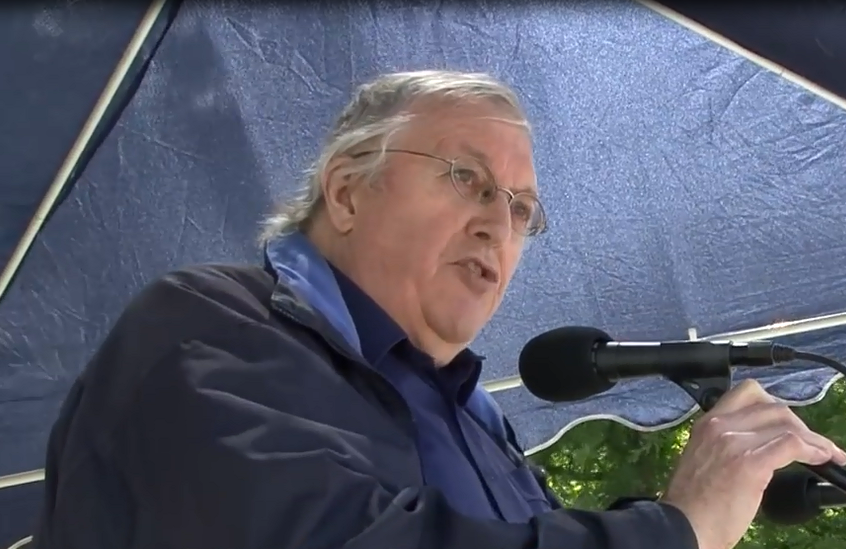
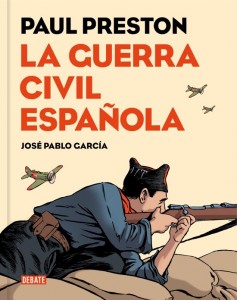
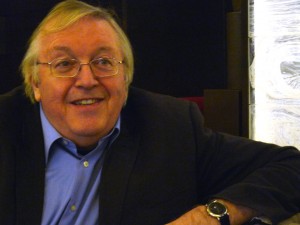
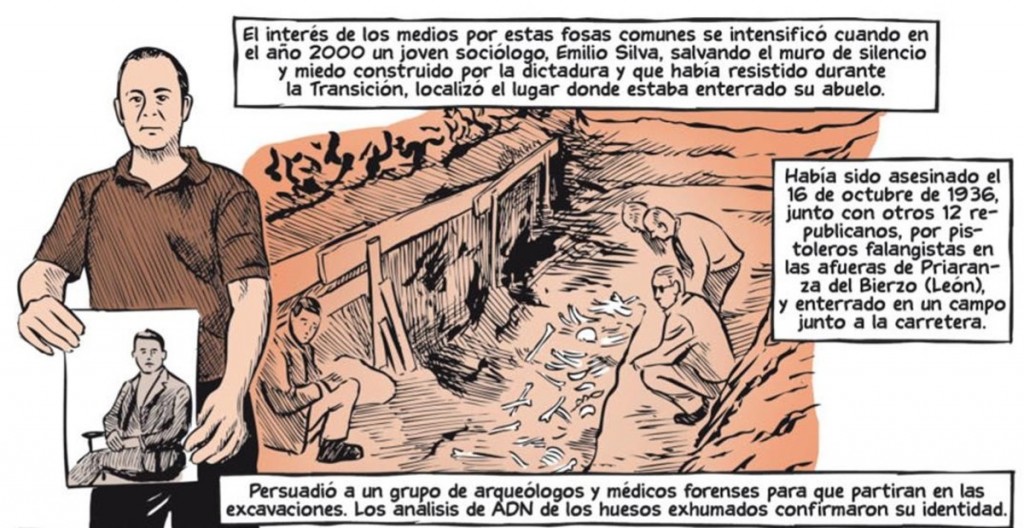
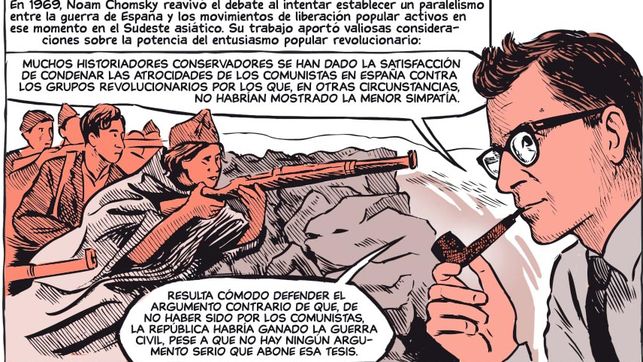












I would like to make contact with Paul Preston to ask him for advice on how to determine the integrity of two key elections in Spain: 1931 and 1936. Were they fraudulent in awarding governing power to the Popular Front/Republic over the right wing? I ask for two reasons: 1) I have read that the fascists were particularly brutal as they advanced from Africa because “two third’s of the country supported the Republic over them. However, 2) my research of these two elections is that although the Republic won the majority of seats both times, it wasn’t a two-third’s victory margin. I am thinking that an expert like Sir Paul and/or someone he could recommend would save me a lot of research time. Thank you!!
http://www.lse.ac.uk/International-History/People/emeritus-distinguished-staff/preston/preston